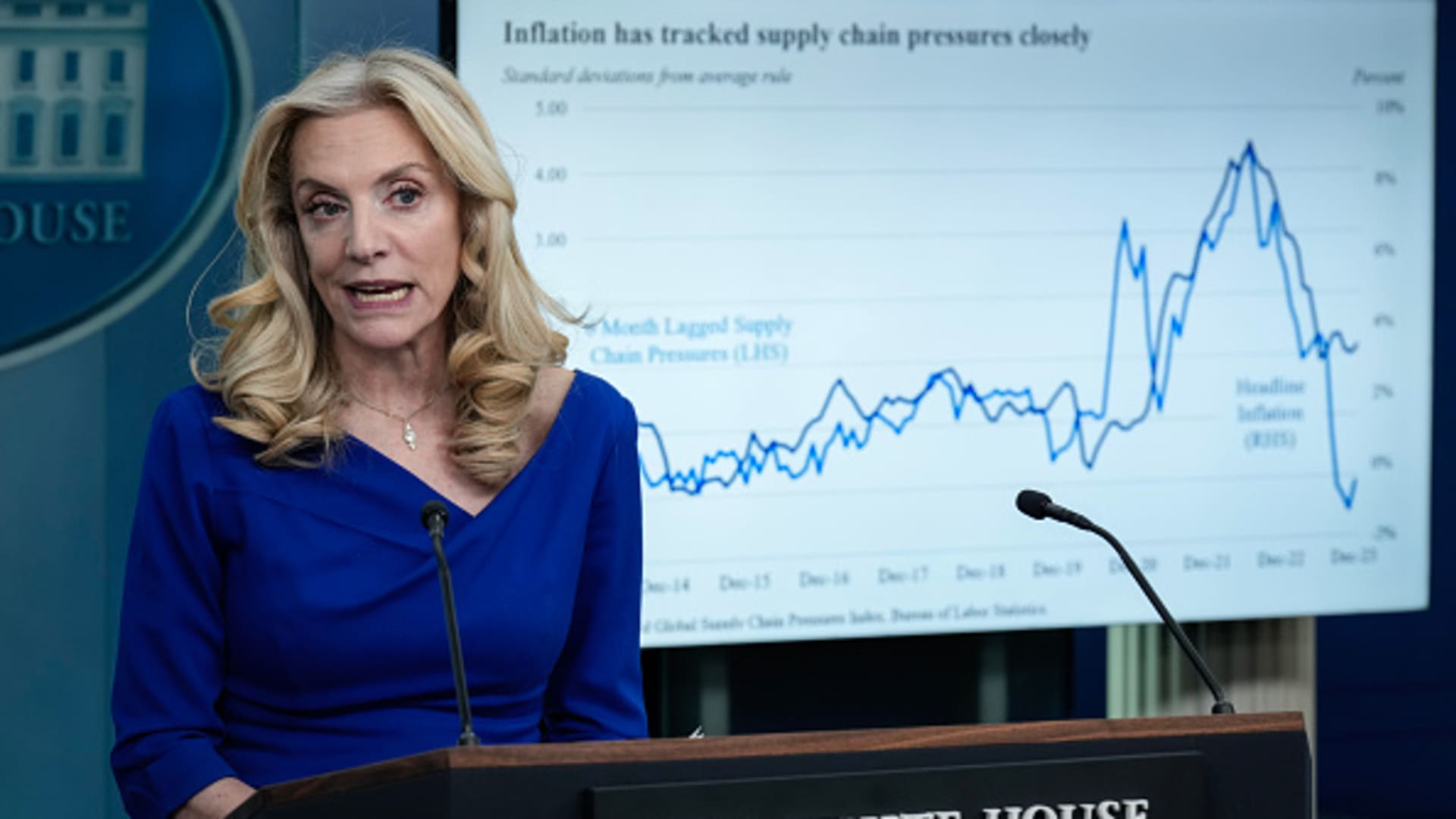- Lael Brainard blamed higher consumer prices on “shrinkflation,” amplifying President Biden’s latest line of attack against corporate price gouging.
- Despite the White House touting a recovering economy, consumers have yet to feel the relief and have blamed Biden for it, which has weighed on the president’s 2024 reelection bid.
- Consumer brands like Coca-Cola, PepsiCo, Procter & Gamble and more have raised prices over the past year to help keep profits afloat.
National Economic Council Director Lael Brainard on Tuesday blamed higher consumer prices on “shrinkflation,” doubling down on the latest battlefront of President Joe Biden’s corporate pressure campaign.
“If you look at some of the staples, like eggs or milk, they have come down. But consumer brands, instead of actually lowering prices, they’ve shrunk packaging,” Brainard said on CNBC’s “Money Movers.” “That’s the shrinkflation that the president is really calling attention to.”
Brainard’s comments came hours after the consumer price index showed inflation trending above expectations, coming in 0.3% higher in January. In particular, food prices slid up 0.4% during the month. Consumer brands like Coca-Cola, PepsiCo, Procter & Gamble and more have raised prices over the past year to keep profits afloat.
Shrinkflation, the practice of reducing product sizes while keeping prices the same, is Biden’s latest line of attack against corporations, which he debuted on Super Bowl Sunday.
Both the White House and Biden’s 2024 reelection campaign have touted inflation recovery as a key accomplishment of his economic agenda, dubbed Bidenomics. But consumers have yet to feel the relief on their wallets and they blame Biden for it, according to recent polls. Instead, Biden has pointed the finger at corporate price-gouging tactics, which he says are the real driver of sticky high prices.
“The president is going to continue emphasizing that input costs have come down, supply chains have healed,” Brainard said. “He’s going to keep calling on corporations to pass those savings on to the American consumer.”













